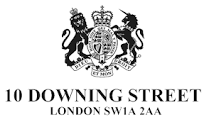NEWS STORY : London Director Banned for Misuse of COVID-19 Bounce Back Loans
STORY
A London-based director, Adam Ebrahim, has been disqualified from serving as a company director for 13 years after fraudulently obtaining £100,000 through the COVID-19 Bounce Back Loan Scheme for two companies that never commenced trading.
False Loan Applications for Non-Trading Companies
Ebrahim, 41, of Trevelyan Gardens, London, established Chicken Grill Cottage Ltd and Presto Delivery Ltd in 2019, intending to operate a takeaway service and a parcel delivery business, respectively. Despite neither company beginning operations, Ebrahim applied for Bounce Back Loans in 2020, falsely claiming turnovers of £400,000 for Chicken Grill Cottage Ltd and £235,000 for Presto Delivery Ltd.
In May 2020, he secured a £50,000 loan for Chicken Grill Cottage Ltd, followed by another £50,000 loan for Presto Delivery Ltd in September 2020. Contravening the scheme’s regulations, Ebrahim transferred the funds to his personal account.
Legal Consequences and Official Statement
On March 18, 2025, the High Court in London issued a disqualification order against Ebrahim, effective from April 8, 2025, prohibiting him from involvement in company promotion, formation, or management without court permission until April 2038. Additionally, he was ordered to pay £9,555 in costs.
Kevin Read, Chief Investigator at the Insolvency Service, commented:
“Adam Ebrahim exploited the Bounce Back Loan Scheme by securing two maximum-value loans for companies which never began trading. Ebrahim made matters worse by pocketing the funds when the loans were not supposed to be used for personal purposes. Tackling Bounce Back Loan misconduct remains a key priority for the Insolvency Service more than five years on from the start of the pandemic, and we will continue to take action against those who stole from the public purse during a national emergency.”
Background on the Bounce Back Loan Scheme
The Bounce Back Loan Scheme was introduced by the UK government in response to the COVID-19 pandemic, offering loans of up to £50,000 to support small and medium-sized enterprises. The scheme required applicants to use the funds solely for business purposes and to certify their company’s trading status and turnover accurately. Misrepresentation or misuse of funds under this scheme has led to legal actions and disqualifications, as demonstrated in Ebrahim’s case.



